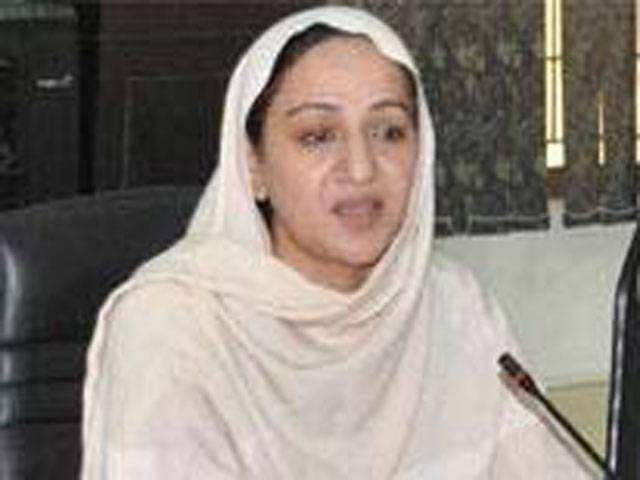ISLAMABAD - Saira Afzal Tarar, Minister of State for National Health Services, Regulations and Coordination, has remarked that Pakistan lags behind its South Asian neighbours in terms of improving health and population outcomes and collective efforts require at all levels to improve health indicator.
She was addressing National Dissemination Workshop - Improving Maternal and Newborn Health Thursday here on Wednesday. The minister said mortality of female is reported to be 66 per cent higher for girls than for boys between the age of 1-4 and mortality rate for women between the ages of 20-29 is about double that of men.
The minister further said that population of Pakistan is growing at 1.7 per cent per year. Despite decreasing fertility in the 1990s, total fertility remains high at 3.8 children per woman. High fertility continues to put an enormous burden on the health of mothers resulting in high maternal mortality. Majority of maternal are direct obstetrical deaths resulting from preventable causes.
The minister said that high maternal and infant mortality is determined by maternal health and nutrition status and availability of quality maternal health services. “But there has been no change in the nutritional status of mothers and children in Pakistan during the last decade. A quarter of newborns have low birth weight and percentage of under-five children who are under-weight range between from 33-45 per cent. Anaemia remains prevalent among women (40 per cent) and children less than five years (62 per cent) as compared to men (21 per cent). The poor nutrition status is as a result of repeated pregnancies, inadequate food intake, and poor dietary habits resulting from low status of women limiting access to food within the household.” The minister said increasing income/consumption poverty and slow progress in education, especially of women, further complicates this.
Pakistan is a signatory to the internationally agreed Millennium Development Goals (MDGs), a set of development targets against which development progress would be measured. Of the eight broadly stated goals and 18 specific targets, six are directly related to health and four focuses on maternal and child health. Pakistan despite all efforts has been unable to meet its MDG targets and has far to go.
The minister commended efforts by Aga Khan University and SoSec Consulting services for undertaking this research in the Conflict areas and urge the provincial governments to use this information for future planning and implementation. She also thanked the DFID and Aus AID for their continued support for women and children of Pakistan.
Thursday, April 18, 2024
Population growing at 1.7 per cent: Minister

Mehwish Hayat says she would like to work with Aamir Khan
9:59 PM | April 18, 2024
'That'll be awesome,' Rohit Sharma on idea of Pakistan vs India Test series
9:17 PM | April 18, 2024
Turkiye commends Pakistan's efforts in fostering regional peace
9:03 PM | April 18, 2024
CM Maryam's security squad hits biker to death in Narowal
9:02 PM | April 18, 2024
Hafiz Naeemur Rehman sworn in as new emir of Jamaat-e-Islami
8:54 PM | April 18, 2024
Hepatitis Challenge
April 18, 2024
IMF Predictions
April 18, 2024
Wheat War
April 18, 2024
Rail Revival
April 17, 2024
Addressing Climate Change
April 17, 2024
Justice denied
April 18, 2024
AI dilemmas unveiled
April 18, 2024
Tax tangle
April 18, 2024
Workforce inequality
April 17, 2024
New partnerships
April 17, 2024
ePaper - Nawaiwaqt
Advertisement
Nawaiwaqt Group | Copyright © 2024





